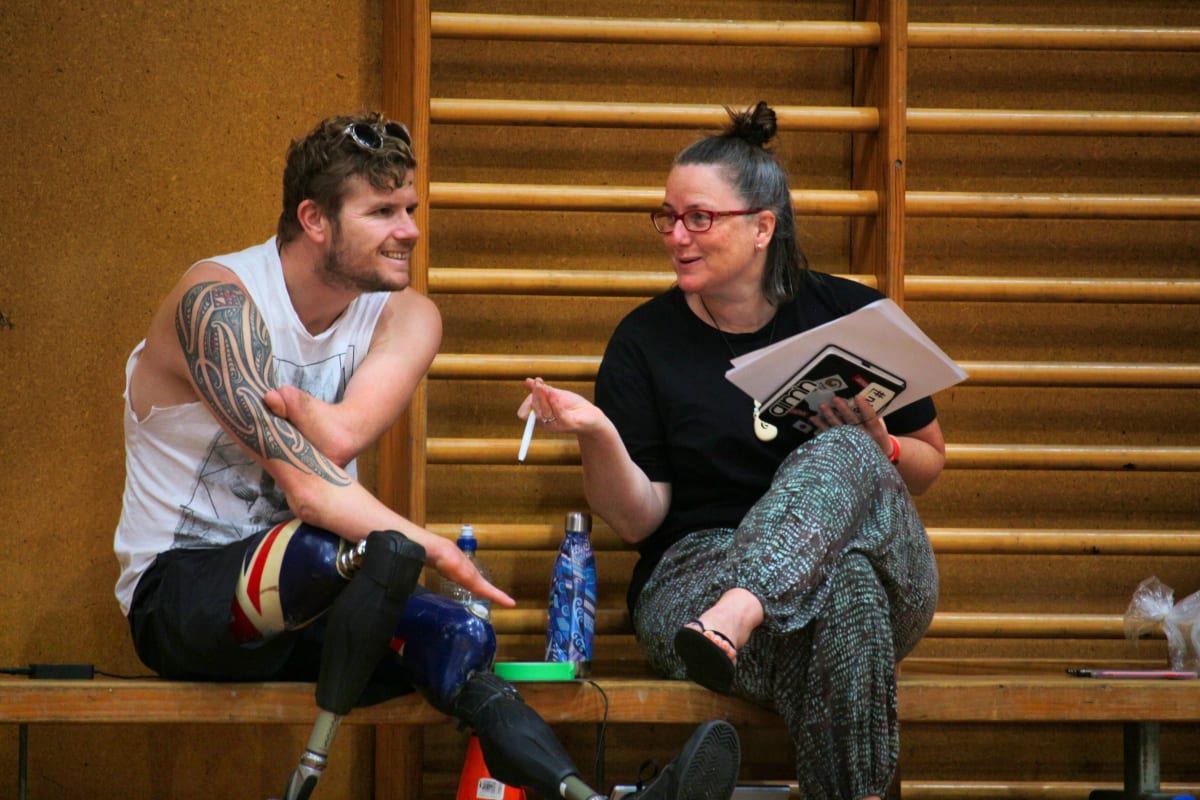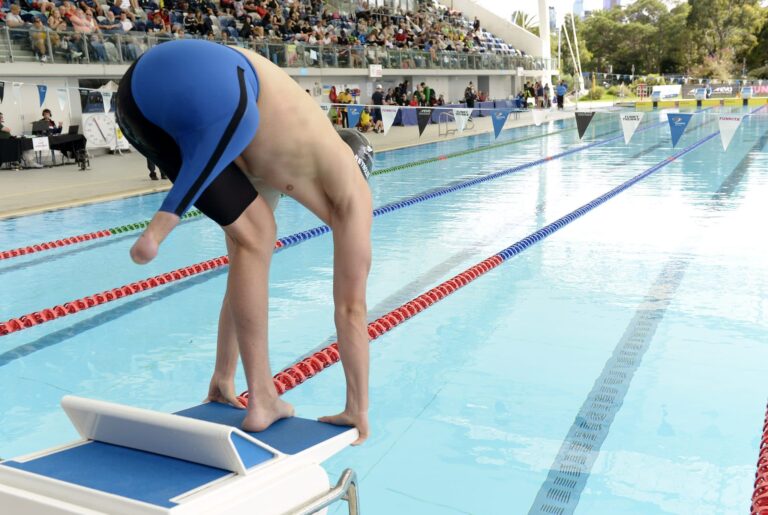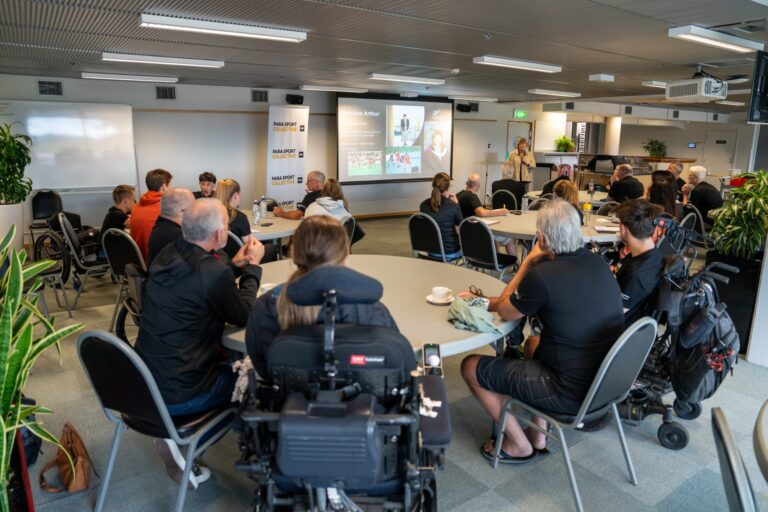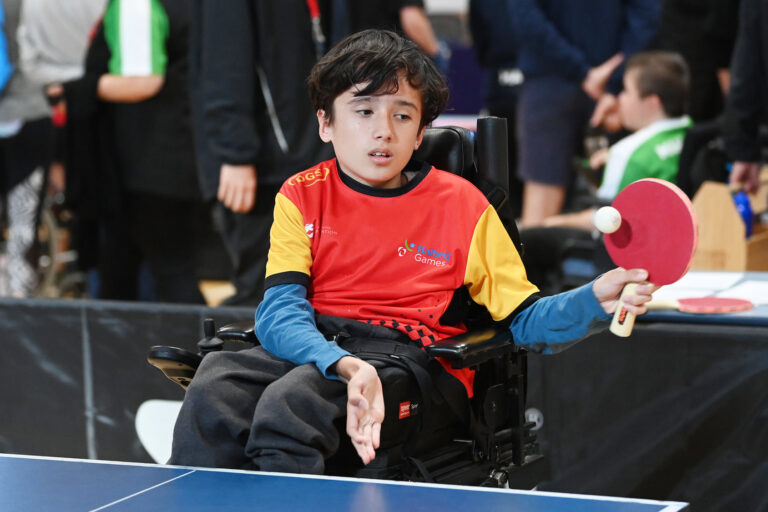Story written by Suzanne McFadden for LockerRoom.
Sacha Wright may be the one looking after the Wheel Blacks, but they’ve changed the way their team manager sees the world.
Four years ago, Sacha Wright took a bit of a punt putting her hand up to manage New Zealand’s wheelchair rugby team – a sport she’d never seen, or even heard of, before.
But she’s never been one to hesitate when a gap opens in front of her.
During Wright’s tenure as manager – a voluntary role – the Wheel Blacks have qualified for the Paralympic Games for the first time in 12 years. And she reckons she’s learned more from these Para athletes than they’ve learned from her.
“I definitely do things differently than I did four years ago,“ Wright says. “I used to be a really impatient person – and you can’t be impatient. I’m a self-confessed control freak – and you can’t be that either.“
Especially when you’re dealing with up to 700kg of luggage – some athletes having to travel with three different wheelchairs – and having to remove doors off hotel rooms just to make them accessible.
“As much as I want it always to be perfect for them – getting from A to B, playing, then getting back again – it rarely works out like that. The players sometimes tell me to just chill out: ‘What could possibly go wrong?’“
Well, there was Wright’s first foray with the team overseas, to a tournament on the Gold Coast, where she made lunch for the players but added ice to the lunchboxes – resulting in soggy, inedible sandwiches.
“Thank god they found it hilarious – I was absolutely mortified,“ she recalls. She had to buy them fast food the team’s nutritionist would not have approved of.
“Three years later, they still remind me of my disaster. But I’ve learned not to take myself too seriously, to go with the flow.“
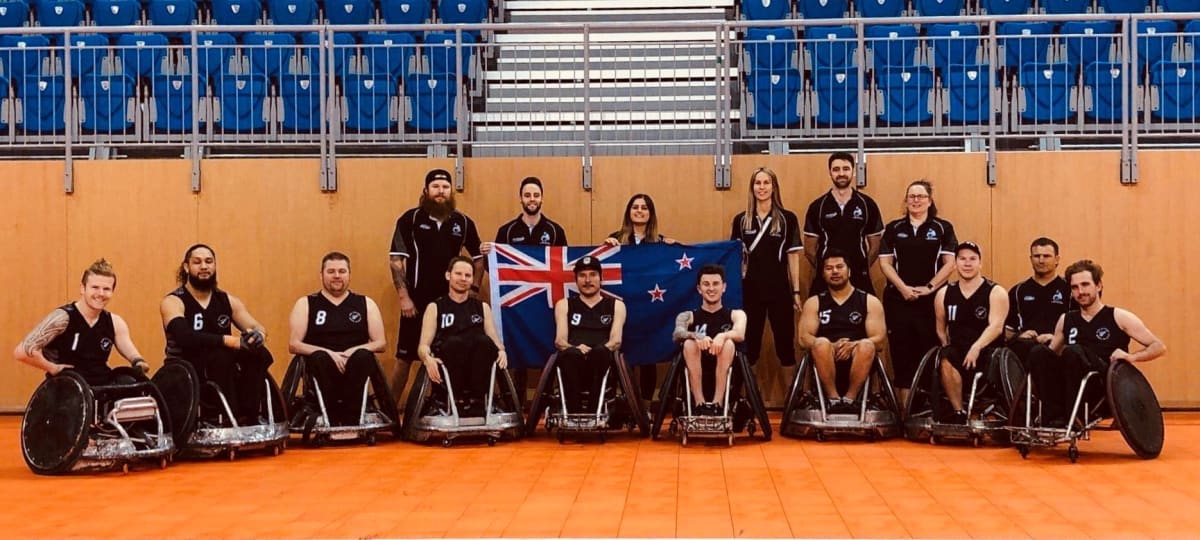
Wright calls herself a gypsy, having grown up in Palmerston North, Kawerau, Napier, Whangarei and Auckland. Her careers in hotel management and investment banking then took her to roles all around the world. But taking care of the Wheel Blacks means she now looks at travel through a very different lens.
“My view of the world has changed. When I get to a new destination now, my first thought will either be ‘This is really wheelchair accessible and mobility friendly’, or ‘I hope we don’t ever have to come here because it will be really hard’,“ she says.
“Travelling with the team on a plane is quite an exercise to get on and off. But now I really enjoy it. It’s part of the journey. You get to know the staff on the plane, and they get to know about our sport.“
Wright readily admits she hadn’t heard of wheelchair rugby when she learned the role was vacant. It’s a two-pronged job: for most of the time, programme manager for New Zealand Wheelchair Rugby – planning training camps and tours. But that switches to team manager of the Wheel Blacks when they’re on the road.
At the end of 2016, she’d just finished her studies to become a Master of Professional Business Studies in management, when an email dropped in her inbox at her job, as High Performance Sport NZ’s people and capability manager. The email was looking for someone to fill the Wheel Blacks role.
“I think the person who sent it was dangling a carrot,“ she laughs. But it was the perfect fit – Wright had been mentoring young New Zealanders for years, but hadn’t had her fill of volunteering.
“I was intrigued. I knew nothing at all about the sport, but I was really inspired by Para athletes. And I’d followed the Rio Paralympics more closely than the Olympics,“ she says.
“I went in very na?ve about what the sport was about. But over the last few years I’ve learned a lot from everyone involved; it’s like being welcomed into a new whanau. I’ve definitely got some things wrong along the way. But we’ve certainly had some laughs.“
Wheelchair rugby is a mishmash of rugby, basketball and ice hockey; where it’s an integral part of the sport to slam chair against chair, often at speed, to block your opponent from carrying the ball across the goal line. It’s spectacular, brutal and otherwise known as ‘murderball’.
Wright – who’s been an avid sportswoman through her life, most recently in dragon boating – is in awe of the strength, speed and stamina of the players she takes care of.
“They are so fit. I’ve been in one of the chairs and I pushed it around for a few minutes and that’s it. I put it in the too-hard basket,“ she says. “But I love watching it. It’s an on-the-edge-of-your-seat sport.“
And it’s not a piece of cake on the sidelines either. Wright sees her job as “fighting little fires as you go“.
Before they’ve even left the ground, there’s the issue of luggage to contend with.
“Each player has their day chair, which is around 15kg. Then their rugby chair can be 25-30kg,“ Wright says. Athletes have different chairs if they’re a defensive or offensive player.
“Some have a special shower chair. Then they each have a wheel bag, which can be 20kg. Their personal bags have a lot of uniforms and training gear. Seeing us at the airport can be a little overwhelming.“
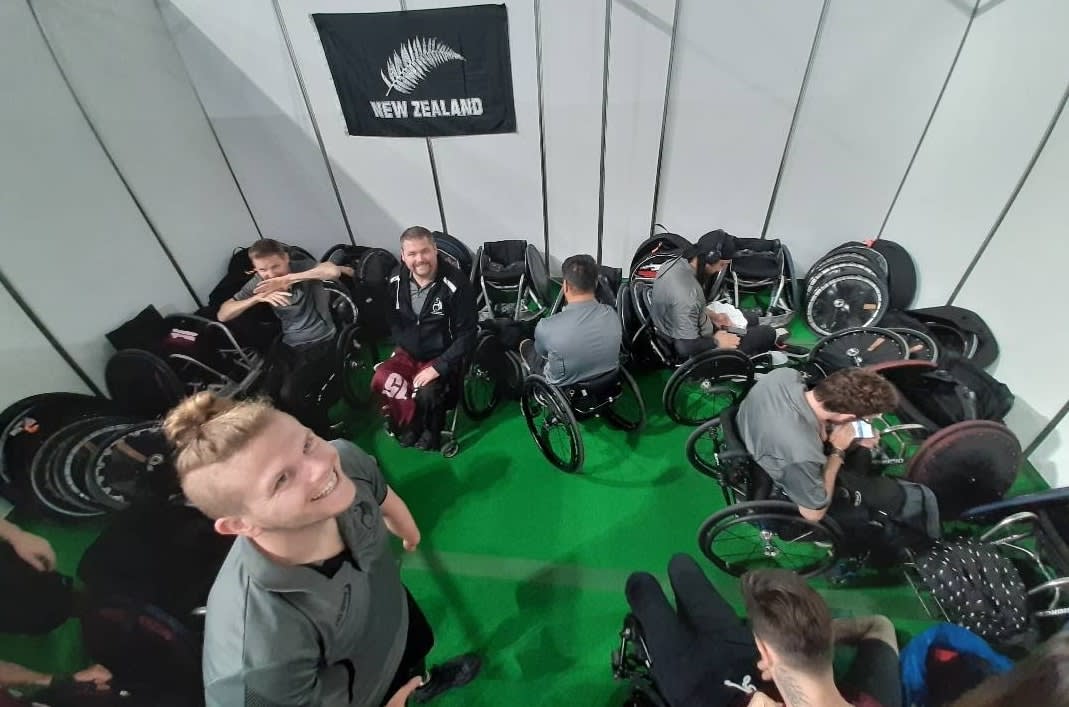
Accommodation can also be challenging. “A lot of doors get taken off their hinges when we arrive,“ Wright says.
“Japanese hotels aren’t really set up for accessibility, but we just adapt.“ Last year, when they went to the World Wheelchair Rugby Challenge (finishing seventh), they stayed in a central Tokyo hotel which had only one wheelchair accessible room.
“It’s all about being solutions-focused,” says Wright. “And everyone is flexible – there’s no-one precious in our team. We’re all in it for the greater good.“
While in Japan – where Wright has lived in the past – she organised a taiko drumming session for the team in their host city, Atsugi. “It was great, because everyone could do it, regardless of their ability,” she says.
The year 2020 has truly tested the control freak in Wright. It was a year that should have been a major one for the Wheel Blacks – the 2004 Athens gold medallists back in with a shot at Paralympic glory after more than a decade’s absence.
But all of the plans Wright had painstakingly arranged were dashed, or put on hold, by Covid-19. “It’s been a tricky old year. We had a fantastic schedule planned. For some of the players, this is the only opportunity in their career to play at the Paralympic Games,“ she says.
“It’s been hard for them to train, too, or even leave the house. Many of our athletes would fall into the high-risk category for Covid, so we’ve only had training camps at Level One.“
But in one area, Wright has been well ahead of the game: “For years I’ve stood at the head of the line at meal-times with the hand sanitiser.“
And things are looking up. Scuppered plans to bring Australia over for a series with the Wheel Blacks this month could be revived in the New Year. There’s a tournament in Canada in June for the eight teams going to the Paralympics that New Zealand want to play in. The Wheel Blacks now have training camps every six weeks, the most recent last weekend.
Although wheelchair rugby is a mixed gender sport, right now, the New Zealand team is all men.
Maia Amai-Marshall, one of the standout players on the team in the past six years and the only female, has recently taken a break from the sport. “I hope she comes back,“ Wright says.
Athletes must have a disability that affects at least three of their four limbs, making it a smaller player pool. But there are more women getting involved, especially in Dunedin – where two top young referees, Kelsey Howlett and Kirsty Gemmell, are striving to draw more females in.
Wright admits that, at first, she found balancing her two roles a tough assignment. But now, in spite of a pandemic, she’s in a rhythm, and has learned to tap into the knowledge of her HPSNZ colleagues to help her help the Wheel Blacks.
And she’s glad she lives by the advice her dad once gave her: “If you don’t give it a try, you’ll never know.“

